Hear from our graduates
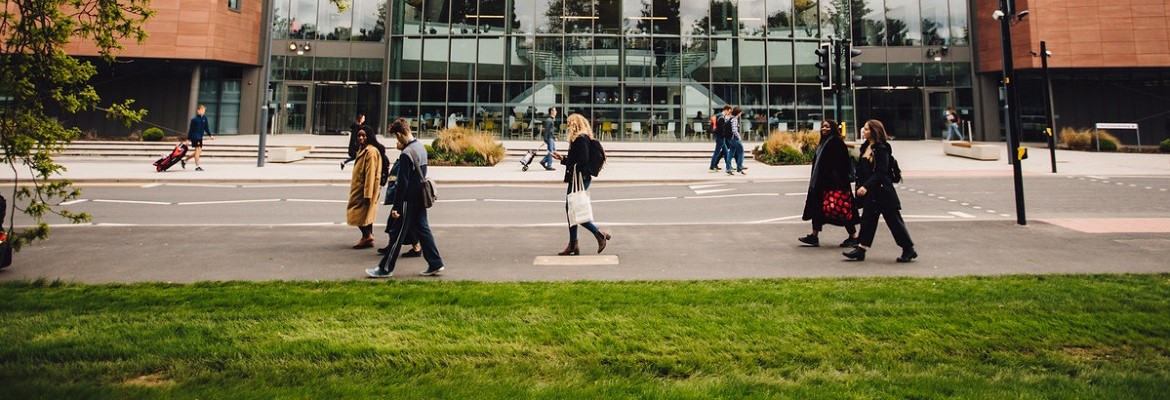
Studying GSD at Warwick opens the door to a host of fascinating and rewarding careers, and our alumni are a testament to the range of opportunities available to you when you graduate.
Hear from some of our alumni about what they're up to now and how studying GSD at Warwick has prepared them for life after graduation:
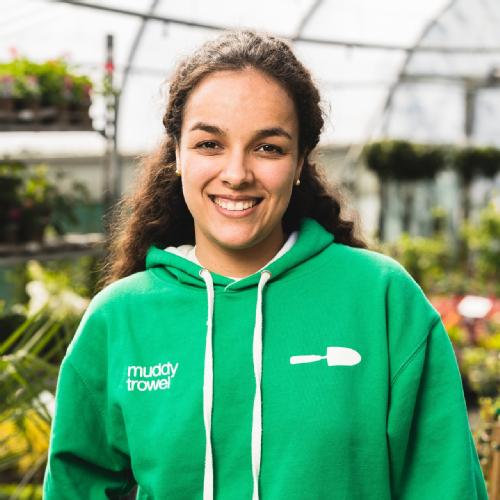
Hannah Abdel-Hadi
-
Undergraduate degree: BASc Politics, International Studies and Global Sustainable Development (2016-2019)
- Postgraduate degree: MSc Innovation, Entrepreneurship and Management; Imperial College Business School (2019-2020)
- Current role: Sourcing Manager at Zinc, UK
Hear from Hannah
What does your role as a Community Associate at Muddy Trowel involve?
"Muddy Trowel is an e-commerce company and we deliver outdoor plant kits to people in London and the South East. It was founded initially to support growers and gardeners during Covid.
As a Community Associate, I am in charge of the community and I mainly do organic marketing and customer success. More recently my role has developed further in marketing, and I am also leading the sustainability work-stream - so I am getting involved in working out the carbon footprint of the business, and also devising a sustainability strategy and action plan in various areas."
What do you enjoy about your job?
"What I really like about this job (and start-ups in general) is that the role is varied and interesting. It's fast-paced and what is great about my job is that no day is the same. It is also amazing to have the flexibility to try out different business areas and learn what I would like to do."
Why is your work important?
"My work is important because it solves a real consumer problem that it is complicated for people to get into gardening - and gardening has a huge importance for both mental, physical and eco-system health. Transforming outdoor spaces in cities has a huge amount of direct and indirect benefits. Not only this, but tackling and being thought leaders for sustainability in horticulture: thinking about plastic pollution, peat, air miles and other key issues, is so important (and potentially transformative) for an industry that historically has been falling short in sustainability thinking and action."
How has your degree helped you in your role?
"In terms of skills that I learned in GSD, we did a lot of collaborative group projects. It was great to be able to work with people from different backgrounds and those sorts of soft skills have become super important, especially when working in a small business in a small team. I then developed and built on those skills in my Master's degree. It was so important to be able to talk to people from diverse backgrounds, and so I think that was a key skill that I learned through studying GSD.
For me, the knowledge that I gained studying GSD and the importance of sustainability in all elements of business means that I was motivated to start the sustainability work stream at Muddy Trowel and own that part of the business. Being able to identify sustainability problems, and approach those problems in a holistic way, is crucial to developing a coherent strategy and future proof the business both for people and planet."
What are your hopes for the future?
"I love start-ups and small businesses, so I'm really enjoying my time at Muddy Trowel. In the future, I will probably look to move around to other start-ups in the social impact space. I'm learning a lot here about community building, marketing, and devising a sustainability strategy, and I would like to take these skills forward to other start-ups."
Fred Betley
- Undergraduate degree: BASc Sociology and Global Sustainable Development (2016-2019)
- Current role: Managing Director at FutureTracker, UK
Hear from Fred
What does your role as Head of Client and User Experience at ESI Monitor involve?
"ESI Monitor is a small team helping other organisations to improve their sustainability. My role is to provide insight from what I learned as a GSD student. They were looking for someone with sustainability knowledge that could be applied to help businesses become more sustainable.
The primary product we offer is our Environmental Framework, which is essentially an environmental management system designed to help organisations to measure their environmental impact. We create a report to show their impact and advise on ways to mitigate, and we help them to make management decisions. We also support businesses with creating action plans to help mitigate their impacts."
What do you enjoy about your job?
"I like that my job is at a small company. There's a low hierarchy: if you have a solution for a specific issue, then you're listened to and you have a voice. I feel very fortunate to be in a position where I can help be in the driving seat of the business."
Why is your work important?
"A lot of sustainability is often focused on international governments or individuals, and both of these are important. However, it's actually the economy and the way that the economy is structured that has got us to where we are. Redesigning how businesses understand sustainability and how they practice it is one of the most important things we can do as a society. Making ways for this to be easy, valuable, and impactful is really exciting."
How has your degree helped you in your role?
"My degree has helped me create a way of understanding the world. When you enter the workplace, you realise that many people and institutions don't see the world how GSD students do. We see it as an interdisciplinary world where everything has an impact, and we understand the relations between those things. My GSD and Sociology modules helped me to understand that there are issues with the world, but there are also answers (and they are all interconnected). I'm realising every day how much I learned from those experiences and how applicable they are.
When you enter the sustainability space in the business world, there are so many different ways you can collaborate with people. You'll never know everything about particular areas, and what GSD did so well was to help me to understand the importance of interdisciplinarity and working with people with different skill sets. It's about that integration, it's not about knowing everything. It's about working with people to create solutions."
What are your hopes for the future?
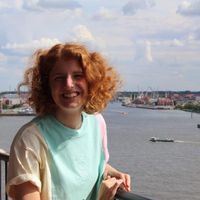
Marlene Jacobsen
- Undergraduate degree: BASc Politics, International Studies and Global Sustainable Development (2018-2021)
- Recent roles: Intern at Climate Home News, intern at Hamburger Abendblatt
Hear from Marlene
Why are you interested in journalism?
"It’s been my dream for 10 years to become a journalist. As a child, I wanted to become an author and then a detective – journalism combines the two perfectly! With this profession comes great responsibility, and a main concern of mine is how polarising most coverage is regarding political controversies. My mission is to report on controversial issues in a way that facilitates constructive public discourse and that helps people with differing views to understand each other. Journalists can be key to advancing social change as we shape the way the public thinks about certain topics. So, accurate climate journalism is key to contribute to a public understanding of this crisis and increase the pressure on policymakers."
What did you learn from your time spent in Germany reporting on the flooding?
"After graduating, I interned at Climate Home News, a news site about the politics of climate change. I investigated where Germany’s disaster prevention and management went wrong for the flooding to reach such a devastating extent.
When I got stuck with my remote investigation, the Editor-in-Chief suggested that I go to the places affected – so off I went, that was my first on-the-ground experience! I had only scheduled one interview, anything else I wanted to do, I had to figure out as I went. So, I had to approach a lot of people on the spot (firefighters, helpers, people who were cleaning up their neighbourhoods) which helped me to get more used to doing interviews and thinking of the right questions. Overall, this trip boosted my confidence and threw me right into the world of work."
🌊 A rapid attribution study by the World Weather Attribution group found that warming to date of 1.2C from pre-industrial levels made the extreme rainfall that triggered the floods in Germany between 1.2 and 9 times as likely to happenhttps://t.co/gY6NWlxKzy
— Climate Home News (@ClimateHome) August 24, 2021
How has your degree prepared you for working in journalism?
"My degree gave me the perfect background for the internship at Climate Home News (and was a reason why they chose me; in the application and interview I talked about the policy briefing and pitch we did in the first year). My knowledge from my degree was very useful as I summarised new research findings in their newsletter and explained climate policy terminology in Instagram posts. For my article about the German floods, I also interviewed experts (urban planners, geologists), and concepts that I had learned in the Sustainable Cities module helped me make sense of their answers. At Hamburger Abendblatt, I interviewed a professor about sustainable architecture and the issues with the construction industry. He gave extensive, complex answers and I had to write the article in one day (as with most articles as it's a daily newspaper), so my GSD knowledge helped me to put some of what he told me into simpler words."
What are your hopes for the future?
"I'm hoping to go to a journalism school in Germany. It's important to me to work internationally and use different languages. I want to be a freelancer and be able to travel for my work. As much as I enjoyed my internship at the daily newspaper, I figured out that daily news isn’t really for me – I want to report on the background of events, give context and practice constructive journalism. The kind of journalism that I aspire to would empower the readers to discuss current issues with nuance, and to think about solutions to the problems that the world is facing."
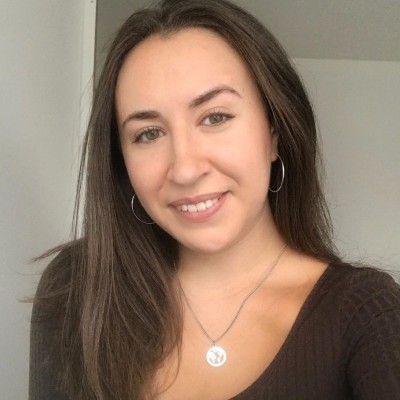
Hollie Ryan
- Undergraduate degree: BASc Politics, International Studies and Global Sustainable Development (2017-2020)
- Current role: Project Coordinator at Hubbub, UK
Hear from Hollie
What does your role as a Project Coordinator at Hubbub involve?
"I work on the creation, development, delivery and evaluation of projects which nudge behaviours and shape systems for environmental and social justice.
Following on from my undergraduate dissertation at Warwick on the potential of on-the-go reusable packaging systems globally, I’m currently working at Hubbub on a research report with Bunzl which builds upon this and is specifically focused on the UK.
I’ve also been working on the development of the Tech Lending Community, which tackles e-waste while increasing digital inclusion in temporary accommodation services for refugees, survivors of domestic abuse and those at risk of homelessness. The initial £400k grant fund developed in partnership with Virgin Media O2 will be funding five Tech Lending Hubs across the UK over the next year to trial the model and gain learnings, with the potential to scale up to more locations."
How has your degree prepared you for your job?
"Studying GSD as a degree was quite a unique experience due to it being interdisciplinary. Studying GSD and Politics alongside students from different disciplines such as psychology, life sciences, economics and business studies, meant I got very familiar with looking at environmental and social challenges from multiple perspectives. My degree has also strengthened my passion for problem-solving and curiosity, as well as strengthening my critical thinking by not taking everything at face value. Finally, what GSD has taught me most is that environmental justice is intertwined with social justice, you can’t have true environmental justice if you don’t have social justice. These skills are so important for nudging behaviours and shaping systems, and are invaluable for my role at Hubbub."
How valuable was undertaking work experience during your degree?
"Undertaking multiple work experience opportunities alongside my degree was invaluable for understanding what I want (and don’t want) from a career in the sustainability sector. It’s really important to understand what makes you thrive and gets you excited to wake up every morning! I experimented with sustainability journalism for the National Union of Students; freelance research for renegade economist Kate Raworth, behaviour change campaigning for multiple environmental charities, and I developed my own projects on campus. From these experiences, I realised I was passionate about the creative and playful side of sustainable development, taking risks to innovate and change the status quo to shape systems and behaviour. While studying a degree is great, it’s these experiences where you’re putting theory into practice that make it all worth it."
How have your extra-curricular experiences helped you in your career so far?
"While I was studying abroad at Monash University in Australia, I took on the role of Marketing and Communications Coordinator for a reusable cup system on campus. Together with two of my cohort members back for final year at Warwick, we trialled a similar system called Warwick Cup. In both of these experiences, I learnt a huge deal about the importance of creating community, by collaborating with stakeholders who have different perspectives and needs, but who ultimately want to work towards the same objective of reducing waste. Setting up Warwick Cup was also a great opportunity for me to get confident in pitching, my networking skills, as well as getting clear on my personal values upon graduation. University campuses are the perfect place to experiment within as living labs, to nudge behaviour and shape systems for the future of wider society."
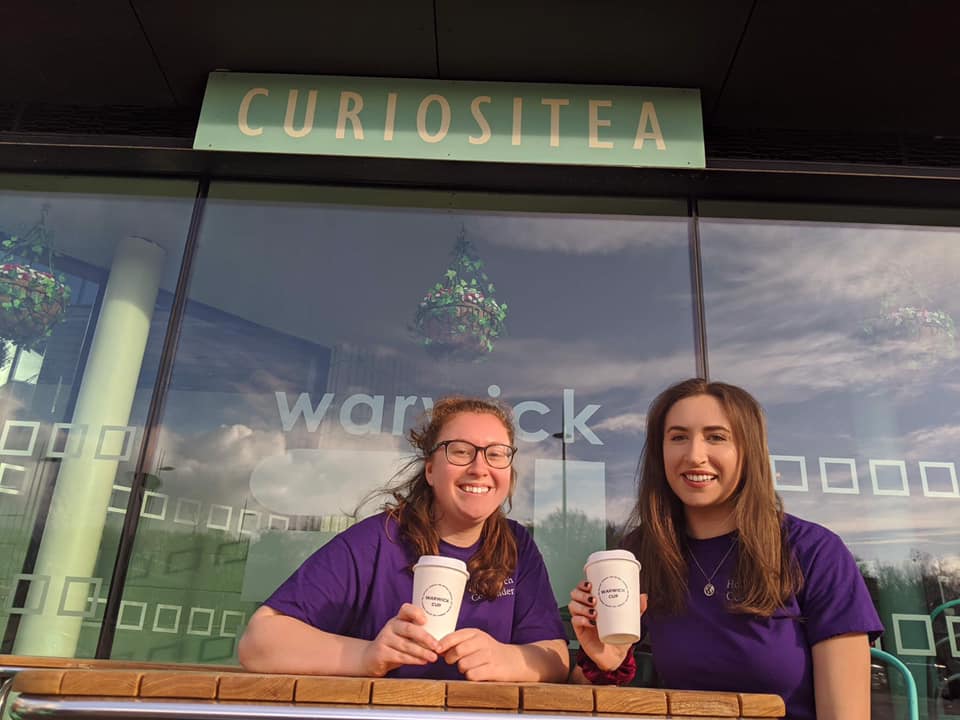
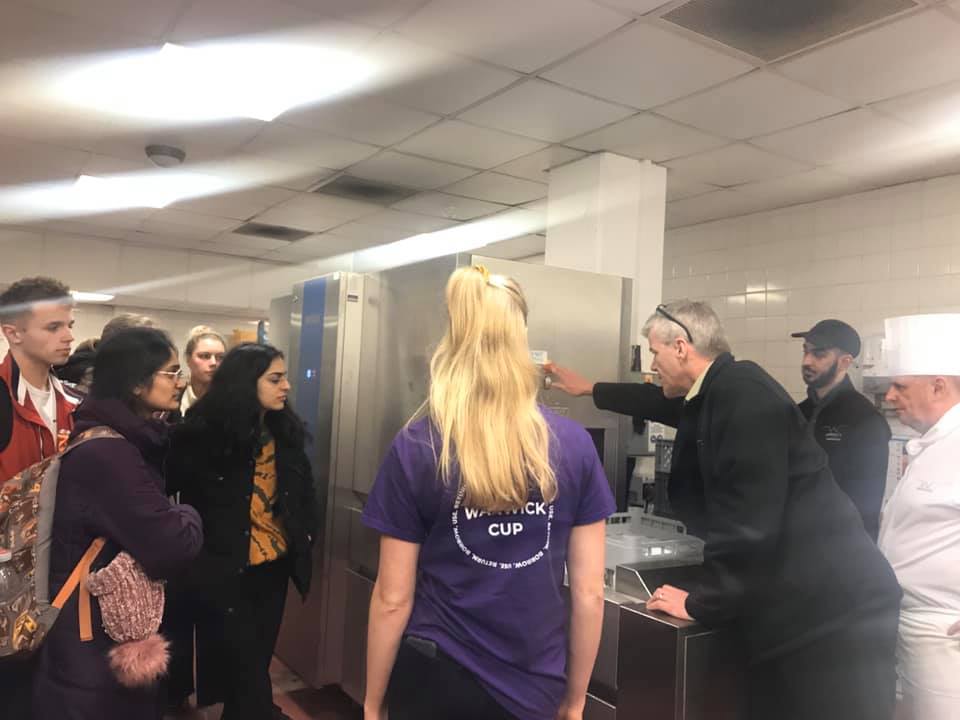
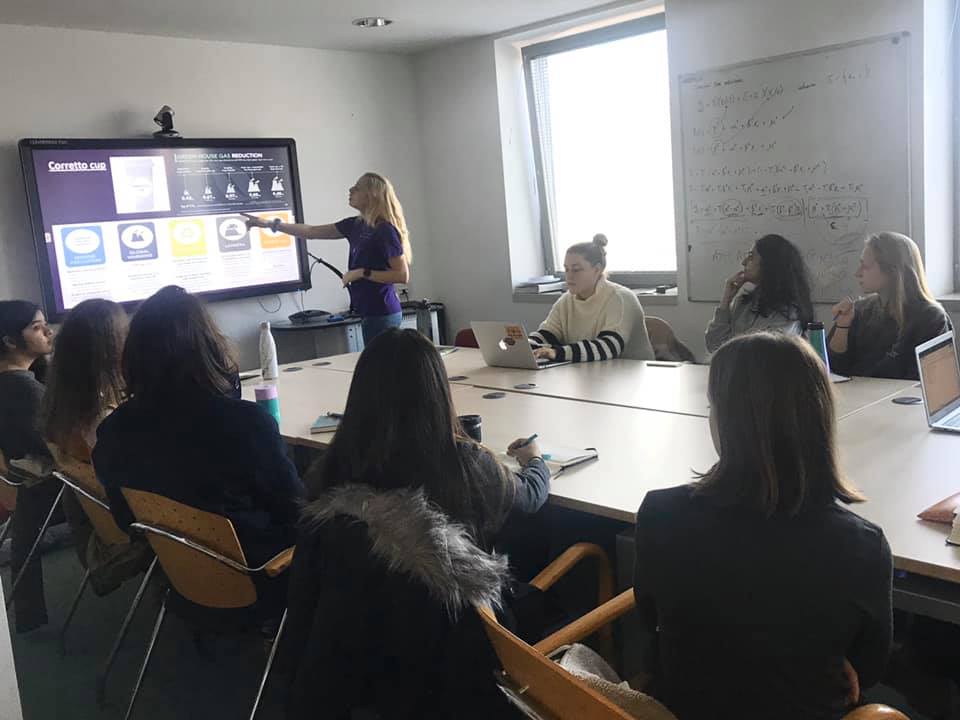
What was the most important thing you learned from your time at Warwick?
"It is okay (and actually a good thing!) to be different, and think in a different way to others. I loved studying GSD because when it came to assignments for modules, we had the freedom to choose what we wanted to focus on. For example, when I was studying the module Security, Sovereignty and Sustainability in the Global Food System, I decided to focus my assignment on the potential of integrating insects into global food systems. We hadn’t studied this directly in the course materials, but by researching entomophagy further and linking it to the theories I had learnt about in the module, I achieved a First. The main lesson I’ve learnt is that being able to think outside the box and challenge the status quo is where innovation happens."
What are your hopes for the future?
"I aim to continue working on innovative projects which challenge the status quo, shaping systems and nudging behaviours in a way which moves away from waste and cultural reliance on single-use items. I want to continue taking risks, and make sure I don’t settle on a path where I’m not growing or being challenged."
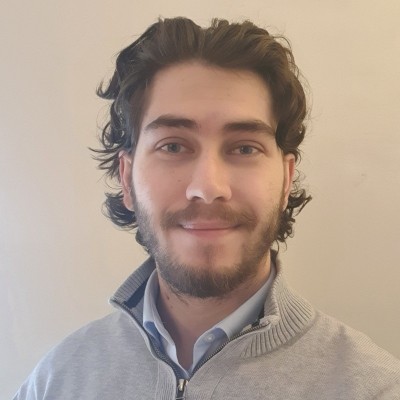
Liam Shah
- Undergraduate degree: BASc Economic Studies and Global Sustainable Development (2016-2019)
- Postgraduate degree: MSc Development Studies, the London School of Economics (2019-2020)
- Current role: Senior Research Manager at Ecorys UK
For more information about Liam's experiences, please feel free to contact him on LinkedIn.
Hear from Liam
The interview below was conducted when Liam was a Research Assistant at Ecorys. Since speaking with Liam, he has been promoted to a Research Manager at Ecorys.
What does your role as a Research Assistant at Ecorys involve?
"Ecorys is an international research consultancy company and its core aim is to address society’s key challenges. There are many arms of the business, but in particular, I work for the Policy and Research Team. We conduct evaluations of different social, economic, and environmental policies and programmes that governments, Non-Governmental Organisations, and different trusts and foundations implement. Within this team, I primarily work on international development.
I’m mainly involved in the collection and analysis of different evidence sources. Sometimes I get involved in the design of the research, for example: how are we going to go about collecting the evidence? How are we going to go about eliciting impact of a programme or policy? I also do a lot of project management, like managing multiple workstreams and proposals to win new work. It’s a very diverse and exciting consultancy-type job.”
What do you enjoy about your job?
"Coming out of the GSD degree, you learn a breadth of different knowledge – interdisciplinarity is key and everything is interlinked. This job has allowed me to work in a sector known as evaluation. I have the opportunity to evaluate multiple programmes and policies which address a variety of global challenges across different thematic areas; as well as to continue acquiring new knowledge whilst building the foundational methodological skill sets that you can apply to a huge array of different policy areas. That's one thing I like about this job!"
Why is your work important?
"It gets down to what sustainable development needs to be. We have all these policies and programmes around sustainable development. There are 17 Sustainable Development Goals (SDGs) and each one has hundreds of different programmes and policies involved. However, we don’t really know what works and why they work, for whom they work, and in what circumstances they work. Sometimes they don’t work, and we don’t know why. What we need to do is collect more evidence to understand sustainability better and to continually update our theory about how we can achieve sustainability. We shouldn't let it be guided by politics and discourse, but let it be guided by the evidence and the reality of the world around us. My job is to collect that evidence and make sense of it, in order to provide better recommendations that offer the foundations for evidence-based policymaking for governments and core actors around the world, to really make a change in terms of creating a sustainable impact.”
How has your degree helped you in your role?
“The GSD Dissertation was key because that’s when you truly get full autonomy over research, design, evidence collection, and also the writing of your results and the discussions around it. It was difficult and challenging, but at the same time I was very excited by the prospect of doing my dissertation. I went to Southern India to do on-the-ground fieldwork, conducting a qualitative study. I interviewed women artisans who are part of social enterprises to understand whether they were economically empowered by this intervention. I gained the methodological skills to conduct research, helping me to be in the field that I'm in now.”
How have your extra-curricular experiences helped you in your career so far?
"Warwick SEED was a society I founded off the back of my experience studying abroad at Monash University in my second year. It taught me a lot about leadership, how to manage my time and organisation. I was creating the society from the bottom up with another GSD student, whilst trying to do my dissertation and handle the stresses of third year. I learnt how to manage a team of over 20 people, set up events, and manage different streams of work. All of this feeds into my ability to project manage today, having experienced those things in practice at university.”
What are your hopes for the future?
“I want to understand the complexity of the world more and how I can use it, tackle it, reign it in. I want to get people to understand it better in a way that’s much more simple so that we can develop qualities that are truly reflective… and are also shaped by, the realities that exist, rather than being these rigid structures that they currently are.”
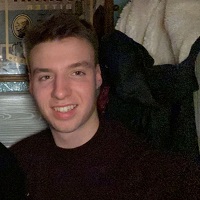
Harry Williams
- Undergraduate degree: BASc Life Sciences and Global Sustainable Development (2017-2020)
- Current role: Senior Policy Advisor, Warm Homes Local Grant at the Department for Energy Security and Net Zero (BEIS), UK
Hear from Harry
The interview below was conducted when Harry was a Policy Advisor in Business Energy Efficiency at BEIS. Since speaking with Harry, he has been promoted to a Senior Policy Advisor at BEIS, working on nuclear energy policy and its role in achieving net zero carbon emissions by 2050.
What does your job as a Policy Advisor at BEIS involve?
"In my role at BEIS I am currently focussing on developing Government policy to improve the energy efficiency of non-domestic buildings. My role is varied, challenging, and rewarding. Daily tasks may include leading on the development of key policy areas, conducting research, meeting with internal or external stakeholders, completing project management tasks, or delivering verbal presentations regarding policy recommendations."
What do you enjoy about your job?
"I find my current role extremely rewarding given the fact that I am directly working on policy related to the built environment and climate change. This is an area that I have had a long-term interest in, so I am motivated to work towards creating positive change. Buildings are a key area where carbon emissions must be reduced for the UK to reach net zero emissions, therefore, the development of policy in this area is a high priority. It is exciting to be involved in developing solutions to such pressing issues."
How has your degree prepared you for your job?
"I wholeheartedly believe that my GSD degree equipped me with a range of transferrable skills that prepared me well for my current role. Two of the most significant include the emphasis on verbal presentations and written assessment within each GSD module. When I started at Warwick, I dreaded the thought of speaking to an audience, but the requirement to do this for most modules really helped me develop confidence and skills in this area. Without this practice, I believe my current role would be much more difficult! The development of written communication skills in GSD also equipped me with the ability to write concisely and clearly. Such skills are used daily in my current role which my GSD degree provided me with a good foundation of."
Elaine Wong
- Undergraduate degree: BASc Psychology and Global Sustainable Development (2016-2019)
- Postgraduate degree: MSc Environmental Technology, Global Environmental Policy at Imperial College London (2019-2020)
- Recent role: Carbon Market Analyst at Equinor
“United Nations (UN) Global Compact focuses on helping the private sector embed sustainability principles into its operations. In UN Global Compact Network UK, there are three workstreams that aim to capture the holistic picture of sustainability: The Global Goals, Business and Human Rights, and Climate Action.
I started as an Intern and then as a Coordinator, supporting The Global Goals workstream. This workstream aims to make the 17 Sustainable Development Goals (SDGs) more approachable and understandable for businesses.
My role as a Global Goals Project Manager is to help our members to understand the SDGs and the underlying targets, and support them in integrating these targets into their business models and strategies. The 2030 Agenda is becoming even more prominent for businesses as we’re understanding the need for a collaborative approach to solve the climate crisis and to achieve the 17 SDGs.”
What do you find rewarding about your role?
“It’s really rewarding to help members and to meet people from different companies who are engaged and committed to the SDGs. In a webinar, it puts a smile on my face to hear case studies about how businesses in the real world are embedding sustainability into their operations. UN Global Compact is creating the space for companies to better understand the SDGs, and for people to bounce ideas off each other and share knowledge.
On a personal level, it’s very rewarding to think that I’m making a small dent in the whole UN Agenda. It feels like a full circle as I started studying at Warwick with global sustainable development being at the centre of my learning, and I’m still able to stay connected to the UN Agenda, but in a much more focused way.”
How has your undergraduate degree, Psychology and GSD, helped you in your role?
“My degree sparked my interest in the SDGs. Throughout my education, I have been very aware of the need for a holistic approach to tackling sustainability issues. My understanding of the fact that it requires different actors across society has helped me with brainstorming and with conversations in the workplace. We’re less than a decade from achieving the SDGs and so we’ve got to involve everyone. It’s all or nothing!”
How did your undergraduate degree help you with your postgraduate studies?
“Going into my postgraduate studies, I had a very different way of viewing things. A lot of my peers came from science or social science backgrounds. A joint honours (undergraduate) degree helped me to be able to understand both sides of an issue.
I think that the Psychology side of my education has helped me in understanding rigid structures such as policies. At the end of the day, it’s the social systems that must enact the policies. During my time at Warwick, I particularly enjoyed social psychology because it’s about trying to understand how humans act as individuals, but also in social and group settings. As my Master’s degree was in Environmental Technology (focusing specifically on Environmental Policy), it was great to see how a lot of the policies that we learnt about are either successful or unsuccessful based on the responses of groups, of policy-makers, of governments, and of the acceptance of civil society. My undergraduate degree has been very helpful in the way I approach and view sustainability issues.”
How valuable was undertaking work experience during your undergraduate degree?
“Placements are useful because they take what you learn in the classroom and challenge you to apply it to the real world. What a lot of interns realise (and graduates too!) is that what you learn in the classroom might not necessarily be completely applicable in the real world. I’m really glad that I got an early experience to discuss those ideas with my line manager and see how they would react to it.
By undertaking two different work placements during my undergraduate degree, I had a good variety of insight. I carried out both placements during one summer, spending a month with the Warwick District Council and a month with NHS Digital. Working for the Warwick District Council as a Sustainability Projects Assistant, I got to see a lot of local issues and understand the area better. This was great because as an international student there’s always some degree of disconnect with the local community and you don’t necessarily understand how to engage with it effectively. Working as a Sustainability Liaison with NHS Digital was very practical, and I was involved in data gathering and speaking with different people. This links to my current role as I spend a lot of time speaking with professionals and practitioners from different businesses and firms across the UK.”
What was the most important thing you learned from your time at Warwick?
“Your undergraduate experience is probably the first time that you’re on your own, being independent, and making your own decisions. Also, as an international student, I came without any connections (and that’s the experience for a lot of students). I learnt so much about being a good student and a good friend, and as a result of my placements, to be a very active contributor in society. My time at Warwick has helped me to become a more mature person and I’m glad I had three years to do that.”
What advice would you give to current students looking to follow a similar career path to you?
“The sustainability space is changing so quickly. Every year, new regulations and reports are coming out from the UN and other regulatory bodies. The best advice I can give you is to stay up to date. Find the time to read original reports and understand what the hype is about. GSD students have the skills and the knowledge to be able to read the original report and understand the severity of the problem.
I would also recommend that you find opportunities to engage with sustainability early on, be it through local volunteering or by attending networking events, webinars, and workshops. Try to find opportunities to learn about things outside of the classroom. What you learn inside the classroom is really important, but so is learning that happens outside the classroom that you can then apply to your academic studies."
What are your ambitions for the future?
“I’m trying to be flexible and open to new experiences, finding out where I fit best in the sustainability picture. Everyone who does this degree wants to make a positive contribution to society, and there’s no such thing as being in a particular job or organisation to have the biggest impact. It’s just about doing the best of your ability in the space that you’re in.”
What would you tell your first-year self now?
“To be more open-minded, and more engaged with the Sustainability Agenda. In my first year, it took a lot of time for me to adapt to the UK and to living on my own. I didn’t have the opportunity to stay as engaged with my studies as I wanted to, and I think that was a missed opportunity. I would really push myself and put myself out there and be more connected to the department.”
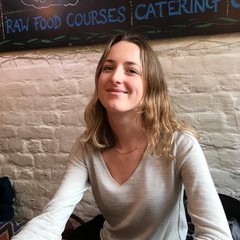
Camilla Zanetti
- Undergraduate degree: BASc Politics, International Studies and Global Sustainable Development (2017-2020)
- Postgraduate degree: MSc Environmental Policy and Regulation at the London School of Economics (2021-2022)
- Recent role: Sustainable Finance Analyst at The Carbon Trust
Hear from Camilla
The interview below was conducted when Camilla was an Urban Mobility Research Assistant at WRI. Since speaking with Camilla, she has started studying a full-time MSc in Environmental Policy and Regulation at the London School of Economics.
What does your role as an Urban Mobility Research Assistant at WRI involve?
"The main aim of the Urban Mobility team at WRI is to improve how people move around in cities. This is done primarily through promoting low carbon mobility options, road safety, road redesign, and examining accessibility and equity issues.
The bulk of my work currently is focused on helping organise the Vision Zero Challenge, a WRI initiative that supports various cities throughout Latin America to design, implement, and regulate a road safety plan. This entails organising roundtable sessions with the cities, reaching out to external speakers and experts, and drafting presentations. Aside from this, I have also written articles for the WRI Cities team blog on the importance of bike lanes and mobility equity. I’ve also written case studies on how to improve urban freight operations in various cities globally."
What do you enjoy about your job?
"One of the things I enjoy the most about my job is that I regularly get to engage with experts in the field and learn about an area which I previously knew very little about. There’s a huge connection between road safety, urban mobility, public health, and climate change. WRI also has a good work-life balance, values its employees' well-being, pays their employees well (always a good thing!), and offers an above-average amount of vacation days per year!"
How has your degree prepared you for your job?
"Studying GSD really helped me work on my writing and research skills, both of which have been super useful for my roles. Studying GSD also gave me a strong foundation and understanding of why sustainability is so important. However, I think that most of my knowledge on urban mobility specifically was acquired through my work experiences."
What are your plans for the future?
"I am starting a Masters in Environmental Policy at the London School of Economics."

Joe Gosney
- Undergraduate degree: BASc Global Sustainable Development Link opens in a new window(2018-2021)
- Current role: Managing Consultant at SLR Consulting
What does your role as a Sustainability Consultant at SLR Consulting involve?
As a sustainability consultant, my role is to advise governments and corporations seeking to develop and implement their sustainability plans. These plans can cover a wide range of goals, but they generally fall under either environmental issues or social governance. My role specifically sits within the environmental side of sustainability. This typically focuses on climate change, but over the years has increasingly addressed areas such as biodiversity, water consumption, and waste disposal. Our team helps organisations understand both how they impact climate change and how climate change will impact them. That means supporting corporations to measure and disclose their emissions, develop decarbonisation strategies that contribute to the net-zero agenda, and also identify the risks and opportunities climate change poses to their operations. It’s about helping them make informed, credible decisions that support long-term sustainability.What do you enjoy about your job?
There is always a new challenge as every industry and every company operates differently, and whilst there may be sector-specific norms, each company has internal politics and structural complexities to navigate. Therefore, the guidance I provide is not just focused on sustainability but looking at how they can overcome broader business challenges, such as organising themselves efficiently and gaining a clear understanding of their operations. Another aspect I really enjoy is getting to share my knowledge and passion of sustainability to educate and benefit others. A huge part of the role is getting non-sustainability professionals to understand why sustainability matters, and why they can’t just greenwash and make claims about being “net zero” or “carbon neutral” without evidence of being so.Why is your work important?
My work is important because it helps corporations both realise and claim accountability for the role they share in addressing climate change. Even small changes to business models can drive profound transformation to the sustainability agenda. My role shows business leaders how they can still succeed and drive profit in a way that won’t destroy the planet. This includes helping them reduce their emissions, invest in comprehensive biodiversity protection, or even understand how to support the communities within which they operate.How has your degree helped in your role?
GSD taught me not just to accept things at face value, but to dig deeper—if something seems like a good solution, are there any unintended consequences that might undermine all that good intention? You learn to zoom out and say, “We might solve this problem, but are we creating another one?” and to think seriously about trade-offs and priorities. The other influence that my degree had was the important lesson that “In sustainability, everything is connected”. Every topic, every industry, every business challenge can be tied to sustainability in some way. That ability to see how it all fits together is rare in the world and something I put to use every day.What are your hopes for the future?
I want to keep doing what I’m doing, but perhaps one day working in-house for a company, so that they are my solo project and therefore I will be able to see through a sustainability project from start to finish.
Ellie Church
- Undergraduate degree: BASc Economic Studies and GSDLink opens in a new window (2017-2020)
- Current role: Head of Project Management Office, Ministry of Justice
What does your role at the Ministry of Justice involve?
I am currently a Head of PMO (Project Management Office) at the Ministry of Justice. PMO sits right at the heart of how big public projects are delivered, so I am responsible for the overall governance of a project, which includes managing risks and issues, planning and scheduling, mapping out governance routes, and engaging with stakeholders to make sure everything stays on track and aligned. I work within the Project Delivery function in the Civil Service, which is made up of around 400 professionals. We get assigned out to different projects, which means I’m always learning, always adapting, and never stuck in one niche. I also collaborate regularly with other departments like Education and NHS England, so the work is naturally cross-cutting. The project I’m currently assigned to is focused on recommissioning contracts within the Youth Secure Estate, where I will be addressing areas related to education, rehabilitation, and youth justice. It’s one of those spaces where you really feel the human impact of the work and how it affects individuals and communities.What do you enjoy about your job?
Not only is my work collaborative and people-focused, but I get to use a wide range of skills – from logic to organisation - to effectively manage both people and projects. Project management is such a broad area; it’s not just about Gantt charts and timelines! A lot of the job is about understanding people: how to keep them aligned, how to challenge and motivate them constructively, and how to get buy-in for decisions. The work I do has an outcome on people’s lives, so it can be rewarding to know that I am making a difference and working towards positive change.Why is your work important?
Because, at the end of the day, someone’s got to do it! Public service can be a challenging place to work; however the job has significant social impact, and I get to collaborate with passionate colleagues who really do care and want to make positive change. However, what the public don’t always see are the constraints of working in government, particularly when it comes to funding and the decisions regarding how it is distributed.How has your degree helped you in your role?
Honestly, so many of the skills I use in my job today have roots in GSD, even if I didn’t realise it at the time. The way the degree teaches you to think systemically, work across disciplines, and ask ‘who’s affected and how’ is all super relevant in project management, and in public service more broadly.Even something like the dissertation, which felt a bit abstract at the time, mirrors a lot of what I do now. You're setting a goal, planning your time, engaging with stakeholders, adapting to new information. It was basically a mini project; I just didn’t realise what I was learning until later!
What are your hopes for the future?
My plan as of now is to stay in the civil service for a bit longer, as I enjoy where I am and am building lots of skills. I am currently undertaking a Level 7 Senior Leadership Apprenticeship at Henley Business School in order to build on my current skillset and gain knowledge of more effective methods to lead and manage people.I often have to remind myself that it is OK to not have everything figured out right now. I used to believe that I must have this perfect five-year plan and that if I didn’t, I was somehow falling behind. However, this isn’t always the most realistic mindset as most careers these days aren’t linear, so rather than looking years into the future, I now focus on the next step rather than the forever step. Now I’m much happier being a work-in-progress. I’ve learned that there’s value in trying, in caring, in showing up, not just in being the best or ticking all the boxes. That shift has made me a better colleague, a better leader, and honestly, a happier person. So, give yourself permission to grow. Your degree, your career, your identity, it’s all still unfolding. And that’s not a weakness, it’s a superpower.
Please note that any text you provide for this page may be edited to ensure we keep stories of a similar length and suited to the method of communication.
